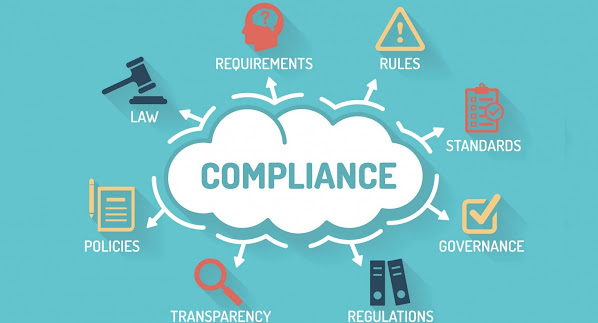When it comes to regulatory compliance, Indian revenue and regulatory authorities have prescribed probably the maximum number of compliances as compared to the regulations prevailing in other countries.. There are numbers of statutes in India and every statute has prescribed its own set of compliances which needs to be completed by every company post company registration in India.
Further, the list of compliances need to be completed by every company irrespective of its annual Turnover or receipts and irrespective of the facts whether its business is in operation or not. This is hardship which is faced by companies with very less or no operations since they have to still make periodical compliance.
Therefore, in order to avoid penalty and legal hassles, it is advisable that before opting for company incorporation in India, every company shall make themselves aware of the list of compliances which need to be completed once company is registered.
In this article, we will be elaborating the common compliances that must be complied with by the Wholly Owned Subsidiary, Limited Liability Partnerships and Joint Ventures in India.
Compliance under Income Tax Act in India
The Income Tax Act prescribes the following compliances with which a company must comply:
1. Annual Income Tax Return: Every company shall file its annual Income Tax Return on or before the prescribed due date i.e. 31st October or 30th November. It must be filed by considering the applicability of the provisions related to transfer pricing in the company.
2. Goods and Services Tax Return: A monthly or quarterly GST Returns are to be prepared by the entities in India depending upon the services and trading activities in India. The GST liability must becomputed by the companies and the same is to be deposited to the revenue department every month. Further, an annual GST return is also required to be filed which is quite a comprehensive return containing summary of transactions undertaken in entire year.
3. Personal Income Tax Return:If the employees, members, directors and all other staff either local or expatriate have a taxable income, then they are required to file their Income Tax Returns in India annually.The due date to file the same is on or before 31st July.
4. Transfer Pricing Study:The organizations that have entered into a specified domestic or international transactions with associated entities, are required to maintain all such information and records for the same as prescribed under Rule 10D of the Companies Act. If the company fails to maintain or furnish such documents then they shall be liable for penalty under Section 92D of the Act. Transfer pricing provisions are normally applicable in case of transactions between parent company and its wholly owned subsidiary.
5. Withholding Tax Return: In case the entity withheld taxes on the following payments made to residents or non-residents-
a. Salaries
b. Rent
c. Interest
d. Dividend
e. Contractual fees
f. Professional fees
g. Commission
h. Brokerage
Then they are required to deposit the withheld taxes to the tax department within the specified time period. They are also required to file the Tax Deducted at Source (TDS) with the revenue department on or before the due date.
Compliance under Companies Act, 2013 in India
Every company is required to complete the ROC Compliances as prescribed by the Companies Act, 2013. These compliances are as follows-
1. Annual ROC Returns:Through E-Form MGT-7, the companies must file their annual returns within 60 days from the date of conducting the Annual General Meeting (AGM). Also, a list of all the shareholders in the company is to be submitted along with the form. It is to be filed on or before 31st March of every financial year for which the return is required.
2. Board Meetings: It is mandatory for the companies to hold at least one board meeting in the first half of the year. It is to be noted that the gap between two meetings must be more than 90 days and not less than that.
3. Financial Statements:In E-Form AOC-4 the annual financial statements must be filed with the Registrar of Companies (ROC). This is to be done within 60 days from the date of holding the AGM.
Compliance under Foreign Exchange Law in India
As per the Foreign Exchange Law in India, every company is required to file and submit their annual returns under the Foreign Liabilities and Assets (FLA), if
1. It has received Foreign Direct Investment (FDI) or has made investment abroad in the previous or current financial year. This is normally applicable in case of subsidiary company registration in India or wholly owned subsidiary abroad.
2. In their balance sheet,they hold foreign assets or liabilities.
The due date to file the same is on or before 15th July each year.
ROC Compliances to be done by LLPs in India
On annual basis a Limited Liability Partnership is required to file the following forms-
1. Form 8: A Statement of Account and Solvency. It is to be filed for declaring the financial transactions done and financial position of the LLP in a financial year along with it turnover.
2. Form 11:Annual Return form for LLP. It is a mandatory annual compliance.
It is to be noted that the LLP Agreement governs the meeting among the management or partners. It also states other requirements for an LLP.
Above is the list of taxation and regulatory compliance which every company in India need to complete before due date in order to avoid penalty.
It may be further noted that all the aforesaid compliance are mandatory irrespective of amount of turnover of the company or the fact whether company is doing any business operations or not. There is a misconception that if the annual turnover of the company is NIL or very less, there is no need to do the compliance.
Therefore, it is advisable for every company whether existing or newly incorporated entity, to take note of due dates of various compliance under different statutes and comply with the same.


Comments